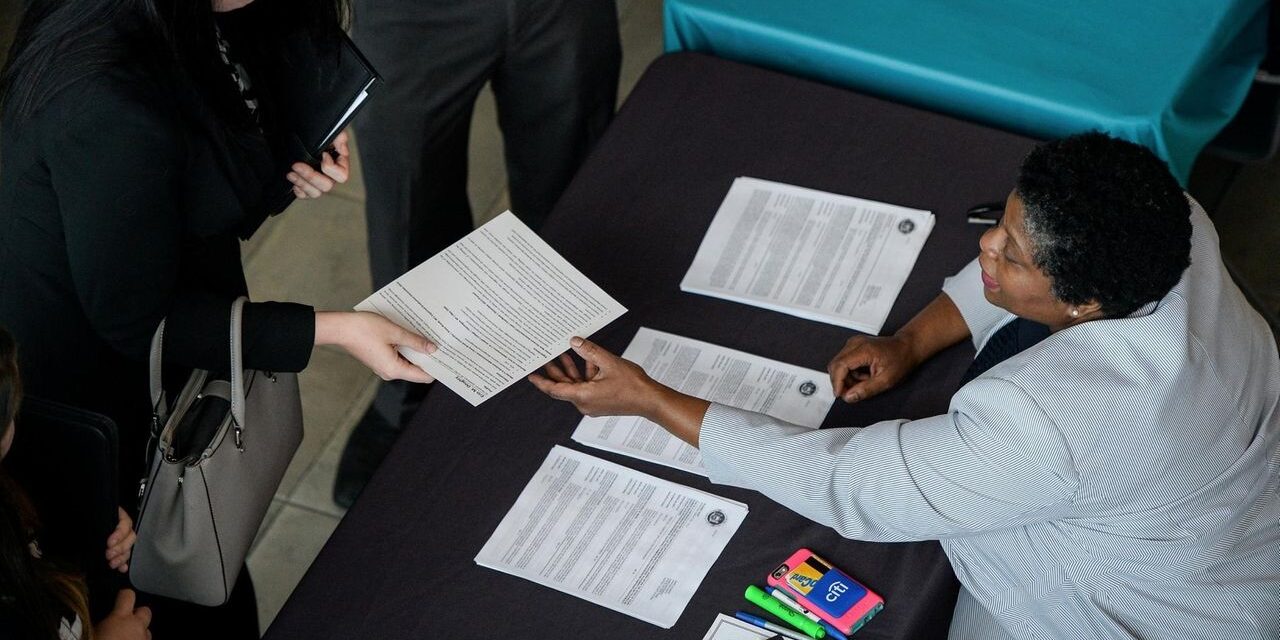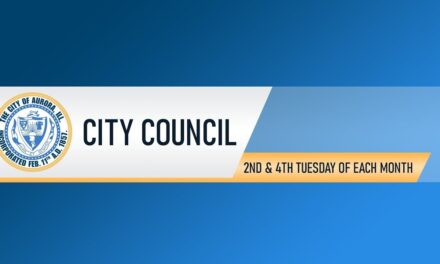A new survey of Long Island CEOs shows division over the importance of diversity, equity and inclusion programs in the workplace.
Among the 268 executives who participated in the annual Long Island Economic Survey, 35% said DEI is part of their company’s mission and is a company priority, while an additional 33% said DEI is important but not a company priority.
“There’s a significantly high adoption rate on Long Island,” said Don Levy, a pollster and director of the Siena College Research Institute, which conducted the survey from Sept. 16 through Nov. 4 with the accounting firm PKF O’Connor Davies. “You’ve got two-thirds of CEOs that we interviewed who say DEI is either a priority or at least important to their company.”
But 32% of respondents said DEI isn’t something they think about.
The results of the survey, which was conducted before the presidential election, were released on Thursday at a breakfast event in Woodbury.
The results come on the heels of President Donald Trump signing executive orders this week to end all DEI initiatives in the federal government, place federal employees responsible for DEI programs on paid administrative leave and end affirmative action in the awarding of federal contracts. He also has directed federal agencies to discourage private companies and universities from using DEI and launch civil compliance investigations targeting them.
In an executive order issued on Tuesday, Trump called DEI programs “dangerous, demeaning and immoral.” A day earlier, in his inaugural address, Trump promised to “forge a society that is color-blind and merit-based.”
Before the second Trump presidency began, several large corporations, including McDonald’s, Walmart and Facebook parent Meta, announced plans to end or scale back their DEI initiatives. Others, such as Apple, Target and Costco, have publicly defended DEI.
Levy, the pollster, said the CEOs surveyed “are not a left-leaning constituency.” They much preferred Trump to win the White House and for Republicans to control both houses of Congress, Levy said in an interview on Wednesday.
This is the first time in the survey’s 30 years that CEOs have been asked about DEI.
DEI, or diversity, equity and inclusion, refers to organizations’ efforts to recognize and value individual differences, ensure fair opportunities—particularly for legally protected groups such as women, LGBTQ+ individuals, people of color, those with disabilities and religious minorities—and foster a workplace where all feel respected and welcomed.
Leaders of local business groups said private-sector employers should be given latitude in terms of how, or if, they embrace of DEI.
“Having a more inclusive workplace fosters innovation, and private employers should have flexibility to implement policies they think can support their operations and bottom line,” Matt Cohen, CEO and president of the Long Island Association, the region’s most influential business group, said in a statement to Newsday.
Still, the LGBT Network and others that provide DEI training in workplaces reported seeing less enthusiasm recently.
“In the past year and a half, we’ve seen a very slow and gradual quieting of DEI efforts,” said Robert Vitelli, CEO of the Hauppauge-based Network, which advocates for and provides services to lesbian, gay, bisexual, and transgender individuals and their families on Long Island and in Queens. He added that some large employers may be less willing to tout their diverse and inclusive hiring practices over fears of “retribution or mistreatment” from the Trump administration and its supporters.
Vitelli also said there’s a lot of misunderstanding about what DEI programs seek to achieve.
“A lot of people think DEI is a handout or reverse discrimination and that’s not true. DEI is about expanding the pool of talent so that more people who are qualified can be considered for a job,” he said in an interview.
In the CEO survey, nearly two in 10 respondents said DEI helps in the hiring and retention of a diverse workforce. A further 15% said DEI has a positive impact on their company’s financial performance.
Nearly six in 10 CEOs said they offer DEI training or education for their employees and the same number said the training was mandatory.
The executives who participated in the poll and their organizations were not identified in the published results.
But Newsday contacted some local businesses and nonprofits on Wednesday about their DEI programs and whether they were committed to maintaining them in the wake of Trump’s actions.
At Stop & Shop Supermarkets Company LLC, which has 46 stores in Nassau and Suffolk counties, DEI efforts are driven by six employee-led resource groups, including those that support multiculturalism, the LGBT community, veterans and women, according to the company’s website.
Asked to provide details about its DEI program, including when it began and whether it will be eliminated or modified, a Stop & Shop spokesperson emailed a statement saying it was committed to offering a welcoming environment for employees and customers.
“Stop & Shop offers a supportive workplace where everyone feels heard, valued, and finds purpose in serving our local communities,” the Quincy, Massachusetts-based chain said in the statement Wednesday.
Northwell Health, the largest private-sector employer in New York State, said DEI programs are essential to caring for people of all ages.
“We serve one of the most diverse regions in the world and we are committed to having a workforce that reflects these communities,” said spokesperson Barbara Osborn in a statement to Newsday. “We are dedicated to achieving the best outcomes for all and an inclusive, diverse, culturally competent workforce that is reflective of our values, our patients, and our communities helps us achieve that mission.”
DEI programs have expanded job opportunities for many locally, especially veterans, according to the Long Island Federation of Labor, which represents more than 250,000 unionized workers.
“One important role diversity, equity, and inclusion programs perform is ensuring the workplace is welcoming and accessible to our veterans,” said Ryan Stanton, the federation’s executive director, adding that over half the 642,000 veterans employed by the federal government are disabled. “Eliminating these programs will unfairly harm veterans wearing their second uniform in service of their country,” he said in a statement to Newsday.
Members of minority groups also will be adversely affected by the federal government’s pullback from DEI, in part because discrimination continues to be a stumbling block to employment and starting a business, according to Phil Andrews, president of the Long Island African American Chamber of Commerce.
“You can’t take hundreds and hundreds of years of unequal treatment and solve it in a decade or two,” he said.
Victor Ocasio and Tory Parrish contributed to this report. It was written by Madore.
A new survey of Long Island CEOs shows division over the importance of diversity, equity and inclusion programs in the workplace.
Among the 268 executives who participated in the annual Long Island Economic Survey, 35% said DEI is part of their company’s mission and is a company priority, while an additional 33% said DEI is important but not a company priority.
“There’s a significantly high adoption rate on Long Island,” said Don Levy, a pollster and director of the Siena College Research Institute, which conducted the survey from Sept. 16 through Nov. 4 with the accounting firm PKF O’Connor Davies. “You’ve got two-thirds of CEOs that we interviewed who say DEI is either a priority or at least important to their company.”
But 32% of respondents said DEI isn’t something they think about.
The results of the survey, which was conducted before the presidential election, were released on Thursday at a breakfast event in Woodbury.
The results come on the heels of President Donald Trump signing executive orders this week to end all DEI initiatives in the federal government, place federal employees responsible for DEI programs on paid administrative leave and end affirmative action in the awarding of federal contracts. He also has directed federal agencies to discourage private companies and universities from using DEI and launch civil compliance investigations targeting them.
In an executive order issued on Tuesday, Trump called DEI programs “dangerous, demeaning and immoral.” A day earlier, in his inaugural address, Trump promised to “forge a society that is color-blind and merit-based.”
Before the second Trump presidency began, several large corporations, including McDonald’s, Walmart and Facebook parent Meta, announced plans to end or scale back their DEI initiatives. Others, such as Apple, Target and Costco, have publicly defended DEI.
Levy, the pollster, said the CEOs surveyed “are not a left-leaning constituency.” They much preferred Trump to win the White House and for Republicans to control both houses of Congress, Levy said in an interview on Wednesday.
This is the first time in the survey’s 30 years that CEOs have been asked about DEI.
DEI is good for the bottom line
DEI, or diversity, equity and inclusion, refers to organizations’ efforts to recognize and value individual differences, ensure fair opportunities—particularly for legally protected groups such as women, LGBTQ+ individuals, people of color, those with disabilities and religious minorities—and foster a workplace where all feel respected and welcomed.
Leaders of local business groups said private-sector employers should be given latitude in terms of how, or if, they embrace of DEI.
“Having a more inclusive workplace fosters innovation, and private employers should have flexibility to implement policies they think can support their operations and bottom line,” Matt Cohen, CEO and president of the Long Island Association, the region’s most influential business group, said in a statement to Newsday.
Still, the LGBT Network and others that provide DEI training in workplaces reported seeing less enthusiasm recently.
“In the past year and a half, we’ve seen a very slow and gradual quieting of DEI efforts,” said Robert Vitelli, CEO of the Hauppauge-based Network, which advocates for and provides services to lesbian, gay, bisexual, and transgender individuals and their families on Long Island and in Queens. He added that some large employers may be less willing to tout their diverse and inclusive hiring practices over fears of “retribution or mistreatment” from the Trump administration and its supporters.
Vitelli also said there’s a lot of misunderstanding about what DEI programs seek to achieve.
“A lot of people think DEI is a handout or reverse discrimination and that’s not true. DEI is about expanding the pool of talent so that more people who are qualified can be considered for a job,” he said in an interview.
In the CEO survey, nearly two in 10 respondents said DEI helps in the hiring and retention of a diverse workforce. A further 15% said DEI has a positive impact on their company’s financial performance.
Nearly six in 10 CEOs said they offer DEI training or education for their employees and the same number said the training was mandatory.
The executives who participated in the poll and their organizations were not identified in the published results.
But Newsday contacted some local businesses and nonprofits on Wednesday about their DEI programs and whether they were committed to maintaining them in the wake of Trump’s actions.
At Stop & Shop Supermarkets Company LLC, which has 46 stores in Nassau and Suffolk counties, DEI efforts are driven by six employee-led resource groups, including those that support multiculturalism, the LGBT community, veterans and women, according to the company’s website.
Asked to provide details about its DEI program, including when it began and whether it will be eliminated or modified, a Stop & Shop spokesperson emailed a statement saying it was committed to offering a welcoming environment for employees and customers.
“Stop & Shop offers a supportive workplace where everyone feels heard, valued, and finds purpose in serving our local communities,” the Quincy, Massachusetts-based chain said in the statement Wednesday.
Health care requires a diverse workforce
Northwell Health, the largest private-sector employer in New York State, said DEI programs are essential to caring for people of all ages.
“We serve one of the most diverse regions in the world and we are committed to having a workforce that reflects these communities,” said spokesperson Barbara Osborn in a statement to Newsday. “We are dedicated to achieving the best outcomes for all and an inclusive, diverse, culturally competent workforce that is reflective of our values, our patients, and our communities helps us achieve that mission.”
DEI programs have expanded job opportunities for many locally, especially veterans, according to the Long Island Federation of Labor, which represents more than 250,000 unionized workers.
“One important role diversity, equity, and inclusion programs perform is ensuring the workplace is welcoming and accessible to our veterans,” said Ryan Stanton, the federation’s executive director, adding that over half the 642,000 veterans employed by the federal government are disabled. “Eliminating these programs will unfairly harm veterans wearing their second uniform in service of their country,” he said in a statement to Newsday.
Members of minority groups also will be adversely affected by the federal government’s pullback from DEI, in part because discrimination continues to be a stumbling block to employment and starting a business, according to Phil Andrews, president of the Long Island African American Chamber of Commerce.
“You can’t take hundreds and hundreds of years of unequal treatment and solve it in a decade or two,” he said.
Victor Ocasio and Tory Parrish contributed to this report. It was written by Madore.

James T. Madore writes about Long Island business news including the economy, development, and the relationship between government and business. He previously served as Albany bureau chief.




